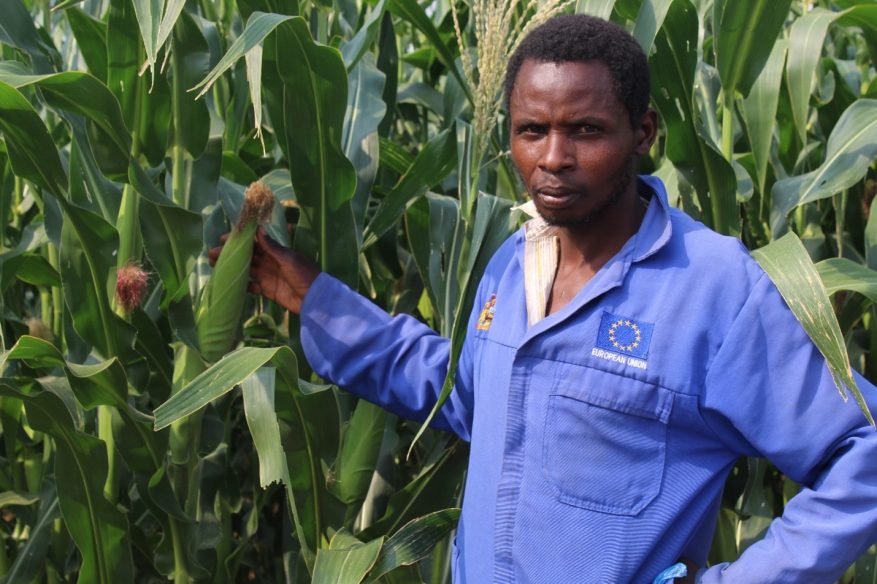A simple solution has increased crop health and led to better yields for the farmers of Tigwirizane Farmer Field School (TFFS) in Malawi. The magic ingredient? Manure.
Winter in Malawi has often been a challenge for farmer and TFFS community-based facilitator Edward Tchuwa, due to continuously low yields of vegetable production. Edward put this down to poor production practices, as he believed the soil was fertile.
A TFFS study comparing the impact of manure on soil fertility, turned around the farmer’s fortunes. “Our results showed that applying compost manure on the planting station provided good nutrition to the crop, leading to a healthy crop and better yield.” said Tchuwa.
The group then decided to apply the same process to maize production, which also yielded encouraging results. As an added bonus, the manure helped to lower production costs, as well-prepared the compost manure, improves water holding capacity, which is important for crop production.
After the positive findings from the study, Edward and nine other farmers decided to adopt this practice for their household production which includes vegetables, maize and tomatoes.
Looking ahead, Edward is investing in further improving his output of crops; with income generated from his vegetables and maize he has bought fertilizer for the summer season. His maize plot looks healthy and he has added a further three maize plots which will mature at different times.
These farming techniques have helped to provide a brighter future for Edward and other farmers in the region. “I’m confident that my household will never experience food insecurity again because I have discovered a big secret to crop production.” He intends to continue helping fellow farmers by sharing what he has achieved.
Self Help Africa are implementing the Kulima BETTER project with financial support from the European Union. The project aims at increasing resilience, food, nutrition and income security among the smallholder farmers.

